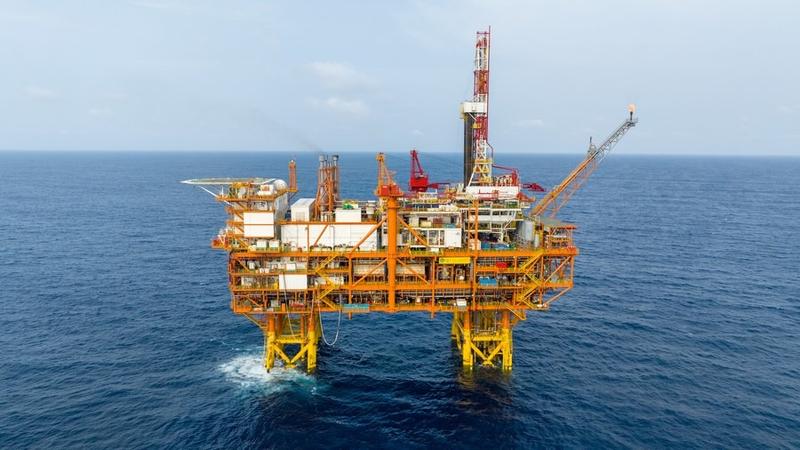 China’s first offshore million-ton carbon storage project is put into operation on Thursday in the South China Sea. The project, serving the Enping 15-1 oil platform 200 kilometers southwest of Shenzhen, Guangdong province, is designed to capture and store more than 1.5 million metric tons of carbon dioxide, which is equivalent to planting nearly 14 million trees, according to the China National Offshore Oil Corporation. (PHOTO / XINHUA)
China’s first offshore million-ton carbon storage project is put into operation on Thursday in the South China Sea. The project, serving the Enping 15-1 oil platform 200 kilometers southwest of Shenzhen, Guangdong province, is designed to capture and store more than 1.5 million metric tons of carbon dioxide, which is equivalent to planting nearly 14 million trees, according to the China National Offshore Oil Corporation. (PHOTO / XINHUA)
The operation of China's first offshore carbon capture and storage demonstration project will further facilitate China's carbon peak and neutrality goals, as oil companies step up research and investment to help them become sustainable in the long run, industry experts said.
The demonstration project began operations on Thursday in the eastern waters of the South China Sea. It will help fill the gap in China's offshore carbon capture, treatment, injection and storage technology, said its operator China National Offshore Oil Corporation.
The facility is expected to store 300,000 metric tons of carbon dioxide each year, and is designed to capture and store up to 1.5 million tons of carbon dioxide produced during the process of oilfield development, said Deng Changhong, deputy general manager of the Shenzhen Branch of CNOOC.
Carbon dioxide captured during oilfield development was injected 800 meters under water on Thursday, close to the Enping 15-1 platform, Asia's largest offshore oil production platform, CNOOC said.
The platform, put into operation at the end of last year, has a daily peak crude production capacity of 7,000 tons. However, the amount of carbon dioxide produced during the oilfield development remains high. If the carbon dioxide is treated in a conventional way, it will not only corrode offshore platforms and pipelines, but also increase carbon dioxide emissions, CNOOC said.
Luo Zuoxian, head of intelligence and research at the Sinopec Economics and Development Research Institute, said that technological breakthroughs in carbon capture and storage are among the most effective ways for China to achieve deep cuts in emissions, offering a way to reduce emissions in sectors that are hard to decarbonize.
Oil companies across the globe are already stepping up research and investment in this area. This will not only expand their own businesses but also help them become sustainable in the long run, he said.
Zhu Yi, a senior analyst at Bloomberg Intelligence, a market monitor, said that carbon capture and storage is an essential part of the solution for China to achieve a carbon peak by 2030 and carbon neutrality by 2060. The country's commitment to peak carbon dioxide emissions will motivate various sectors to upgrade production lines and techniques, Zhu added.
According to a report released by energy company Shell, China, with an estimated 2,400 gigatons in storage capacity, has significant geological potential for storing carbon, second only to the United States.
CNOOC said the company will continue to increase investment in scientific research and promote the green development of offshore oil and gas fields.


